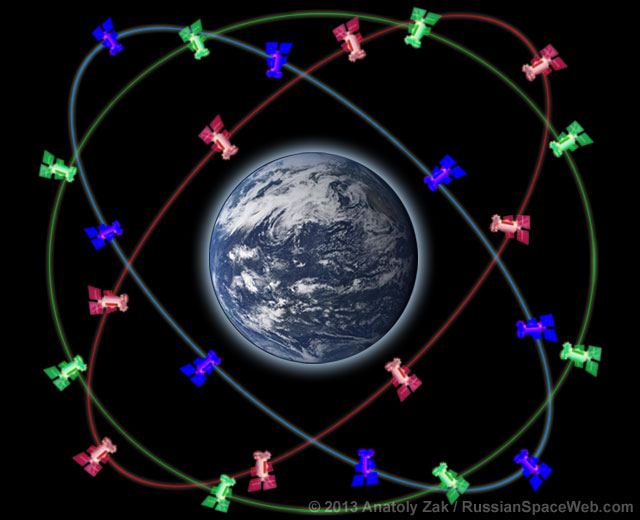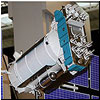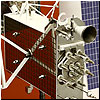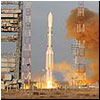GLONASS navigation system (original) (raw)
GLONASS navigation constellation

The GLONASS constellation includes 24 satellites evenly spread over three orbital planes in groups of eight.
HARDWARE
The Soviet military navigation network was to be comprised of Uragan satellites. At the end of the Cold War, the constellation was unclassified under name GLONASS -- a Russian abbreviation of Global Navigation Satellite System.
The third generation of Uragan satellites, a.k.a. GLONASS-K, was launched for the first time in 2011. A lighter, better version of the spacecraft, promises to eventually replace the GLONASS-M satellites which currently comprise Russia's space-based global positioning system.
The latest generation of the Russian satellite navigation network would be represented by the GLONASS-K2 satellite currently in active development. It was expected to feature a new type of navigation signal with the so-called code-protected selection.
HISTORY
Deployment of the GLONASS constellation
It took more than a decade after the launch of the first Uragan satellite in 1982 to declare the GLONASS network in limited operation in 1993. According to official information, the network reached a full deployment in 1995 with 24 satellites in three different orbital planes.




